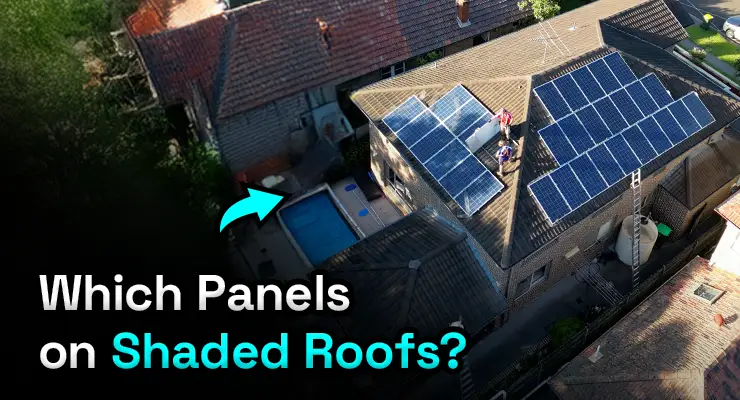
Fast read
Rooftop solar panels are increasingly common, offering sustainable energy solutions. Maintenance is vital for safety and efficiency.
Safety Concerns: While generally safe, faulty systems can pose safety risks like fires if not maintained.
Importance of Maintenance: Regular checks identify issues early, preventing accidents or damage.
Understanding Solar Inverters: String inverters are common but can pose fire risks; microinverters offer safer alternatives.
Rooftop DC Isolator Fires: Faulty isolator switches can cause fires; regular inspection is crucial.
Frequency of Inspections: Recommended every five years, inspections ensure system integrity.
When to Consider Inspection: Moving into a home with solar, suspecting issues, or living in areas with inspection mandates warrant inspections.
Though not always legally required, inspections ensure ongoing safety and efficiency, safeguarding property and occupants.
Understanding Solar Panel Maintenance: Ensuring Safety and Efficiency
To check how safe rooftop solar is, we need to think about the dangers of electrical systems. Even though statistics say rooftop solar is safer than some everyday things like driving, it still has risks. If solar systems aren’t looked after properly, they could cause fires and other safety problems. So, it’s important for people to make sure they have good rooftop maintenance for their solar panels and check regularly to keep them safe.
Is Rooftop Solar Safe?
Understanding if rooftop solar is safe means thinking about the electrical risks involved. While stats say it’s generally safer than everyday stuff like driving, it still has dangers. If solar systems aren’t looked after well, they can cause fires and other accidents.
To keep rooftop solar safe, it’s important to maintain and check it regularly. This means fixing any problems early on. Using good-quality solar panel equipment and hiring trusted installers also helps make solar systems safer.
By being careful and taking these steps, people can use rooftop solar without worrying too much about accidents. It’s all about staying aware and making sure solar systems are in good shape for everyone’s safety.
The Importance of Solar Panel Maintenance
Regular solar panel maintenance helps identify and rectify potential issues before they escalate into safety hazards. Common problems with solar systems include deterioration of cable insulation, component failure, water ingress, corrosion, and damage from animals or natural disasters. By having a professional inspect your system, you can ensure that these issues are addressed promptly, minimising the risk of accidents or damage. This may cost you a small percentage of what it will save you in the long term.
Understanding Solar Inverters
In most rooftop solar setups, there’s something called a string inverter. Its job is to change the power from solar panels from one type to another so we can use it in our homes. But there’s a problem: these string inverters use special cables that can sometimes cause fires.
That’s where microinverters come in. Instead of using those risky cables, microinverters work right at the solar panel level. This makes them safer because they reduce the chances of fires starting.
Choosing microinverters for your rooftop solar system means you can enjoy the benefits of solar energy without worrying so much about safety. They’re a smart pick for anyone who wants to keep their home powered by the sun, without any added risks.
Rooftop DC Isolator Fires
Another safety concern in rooftop solar systems comes from something called DC isolator switches. These switches are meant to keep us safe by disconnecting the solar system during emergencies to prevent fires. But here’s the catch: sometimes, these switches can malfunction and cause fires themselves. This is a significant issue because it puts both property and people at risk.
To avoid disasters, it’s crucial to inspect these isolator switches regularly. By doing this, we can catch any faulty switches early and prevent any potential fires or accidents from happening. So, keeping an eye on these switches is key to ensuring the safety of rooftop solar systems.

Frequency of Inspections
According to the Clean Energy Council, it’s a good idea to have your rooftop solar system inspected periodically. They suggest doing this every five years. While it might seem like a hassle, especially if your solar panel system is newer, the safety benefits are worth it.
During these inspections, professionals check everything from connections and cables to panels and mounting. They also look at isolator switches and inverters to make sure everything is working as it should. These checks help catch any issues early on, preventing potential safety hazards down the line. So, investing in inspections is a smart way to keep your rooftop solar power system safe and working efficiently for years to come.
When to Consider an Inspection
Several scenarios warrant a solar panel inspection, including:
- Moving into a new home with an existing solar system of unknown condition.
- Suspecting substandard solar panel installation practices or faulty components.
- Living in an area where regulatory requirements mandate periodic inspections.
Final Considerations for Solar Panel Maintenance
While solar panel maintenance may not be a legal requirement in all regions, they offer peace of mind and ensure your rooftop solar installation’s ongoing safety and efficiency of solar panels. Investing in solar panel maintenance helps protect your property and loved ones. You can choose to follow regulations or schedule inspections based on personal preference.
In conclusion, prioritising solar panel maintenance frequency is crucial for ensuring the safety and performance of your rooftop solar system. To get the most out of solar energy, be proactive in solving problems quickly to reduce risks and increase efficiency.


